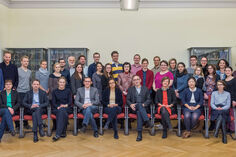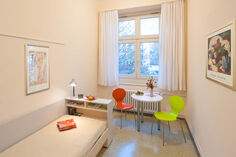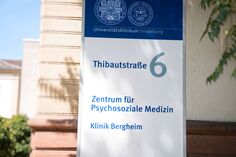UBICA 2: Understanding and Breaking the Intergenerational Cycle of Abuse in Families enrolled in Routine Mental Health and Welfare Services
Project lead: Prof. Dr. S.C. Herpertz, Dr. phil. C. Neukel
Staff: Dr. med. T. von der Lühe, Dr. rer. nat. F. Seeger, M. Sc. Psych. M. Wenigmann
Duration: 2019-2023
Funding: Federal Ministry of Education and Research (BMBF)
Research centres: UBICA II involves the Heidelberg University Hospital (Department of General Psychiatry, Department for Child and Adolescent Psychiatry, Institute for Psychosocial Prevention), the Charité University Medicine Berlin (Psychiatric University Hospital of the Charité at St. Hedwig Hospital, Department of Psychiatry, Psychosomatics and Psychotherapy of Childhood and Adolescence) and the University Hospital of the RWTH Aachen (Department of Psychiatry, Psychosomatics and Psychotherapy of Childhood and Adolescence).
Scientific and clinical reports point out that parents who suffer from a mental illness and parents who were exposed to serious stress during childhood often have difficulties in interacting with their child. For example, they find it more difficult than parents without the above-mentioned stress factors to respond adequately to the emotional needs of their own children. This could lead to a transfer of the burdens from parents to children. Parenting programmes have so far not been successful in protecting children adequately and often fail to reach the group of parents who are at increased risk in their interaction with their child. The aim of our current study UBICA II is therefore to break this transgenerational vicious cycle by means of a prevention programme.
The basis for the development of our prevention programme were previous results of our research group (UBICA I - 1st funding period), which identified cognitive mentalization ability as a protective mechanism in parent-child interaction. The programme focuses on improving the mentalization ability of mentally ill parents. It comprises individual and group sessions as well as counselling by social workers and is carried out by nursing staff and specialist therapists (no medical doctors or psychologists) under regular supervision. It is aimed at parents who suffer from a serious mental illness and are currently undergoing treatment at a psychiatric clinic.
A randomised controlled trial will compare the effectiveness of the mentalisation-based parenting programme and a psychoeducational workshop on parental care.
Accompanying experimental-psychopathological and biological research on social cognitive functions (empathy, compassion, affect recognition, theory of mind) and their neuronal basis as well as on bio-behavioral synchrony in parent-child interaction will allow to understand how, i.e. through which mechanisms of change, the parenting programme unfolds its effects.
If the effectiveness is proven after completion of the study, we aim to implement the prevention programme in routine care in psychiatric hospitals, which is supported by the proximity of the study to clinical practice.



